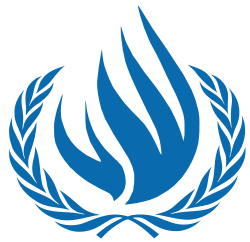By Libya Herald reporter.

Malta, 10 February 2015:
The UN has published a damning human rights report on Libya last year, which will be . . .[restrict]formally presented to the Human Rights Council next month.
The report ‘’paints a bleak picture of increasing turmoil and lawlessness, fanned by a multitude of heavily-armed groups amid a broadening political crisis. Rampant violence and fighting, including in the country’s two biggest cities, Tripoli and Benghazi, as well as many other cities and towns across the country, is badly affecting civilians in general and a number of specific groups in particular, the report says’’, the report said.
While civilians were victims of indiscriminate artillery and air attacks, the report found that unlawful killings and summary executions, including targeted assassinations, were commonplace.
It continued: “Footage appearing to show a number of beheadings in Benghazi and Derna emerged in November. And a number of hospitals, schools as well as airports and other public infrastructure were attacked and damaged, or used for military purposes’’.
‘’A broad cross-section of society has been impacted. Children have suffered tremendously, with large numbers unable to go to school in their hometowns, and some killed or maimed at home or during attacks on schools and hospitals.’’
In addition to indiscriminate attacks, the report documents numerous incidents of targeted violence, with cases of harassment, intimidation, torture, numerous abductions and summary executions of human rights defenders, civil society activists, journalists and other media professionals, as well as members of the judiciary, politicians and law enforcement officers.
Researchers also found numerous incidents of violence against women including threats, attacks and killings of female human rights defenders, politicians and other women in public positions. Minority groups, including Egyptian Coptic Christians, had also been increasingly targeted.
The report also highlights the extremely vulnerable situation of migrants in Libya, especially those in areas affected by the fighting and of internally displaced people. Migrants face arbitrary detention and very poor conditions , marked by overcrowding, poor sanitation and exploitation’.
The document notes: ‘’The number of internally displaced soared from some 60,000 at the beginning of the year to an estimated 400,000 by mid-November. They were displaced as a result of the fighting as well as the intentional destruction of residential properties, farms, factories and other businesses by armed groups targeting perceived opponents, for example in Warshafana and in Benghazi. Some, like the Tawerghans, have been displaced multiple times’’, the report explained.
Thousands of people remain in detention, mostly under the effective control of armed groups, with no means of challenging their imprisonment as prosecutors and judges are unable or unwilling to confront the armed groups. UN human rights staff had received reports of torture or other ill-treatment in many places of detention’.
‘’The deteriorating security environment has impacted heavily on the justice system, which is no longer functioning in parts of the country” says the report, “Prosecutors and judges have frequently been subjected to intimidation and attacks, in the form of court bombings, physical assaults, abduction of individuals or family members and unlawful killings’’.
The report highlights ‘’the need to strengthen state institutions, ensure accountability for human rights violations and support the ongoing political dialogue. While the continuing violence has had a disastrous impact on the running of some key institutions, others continue to function but need support, most notably the Constitution Drafting Assembly. The National Council on Civil Liberties and Human Rights, Libya’s national human rights institution which has been forcefully shut down in Tripoli, must be allowed to resume its work’’, the report demanded. [/restrict]











